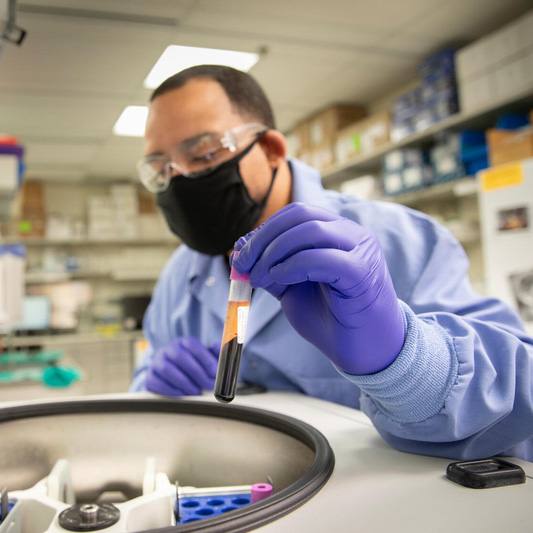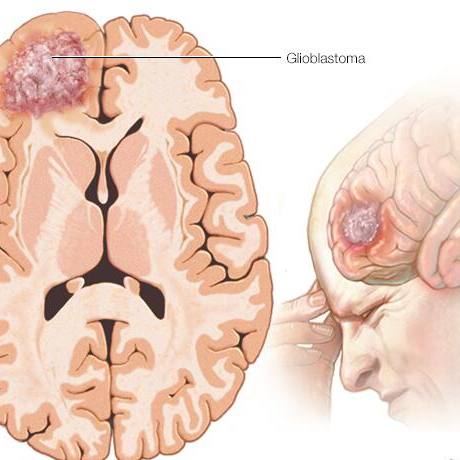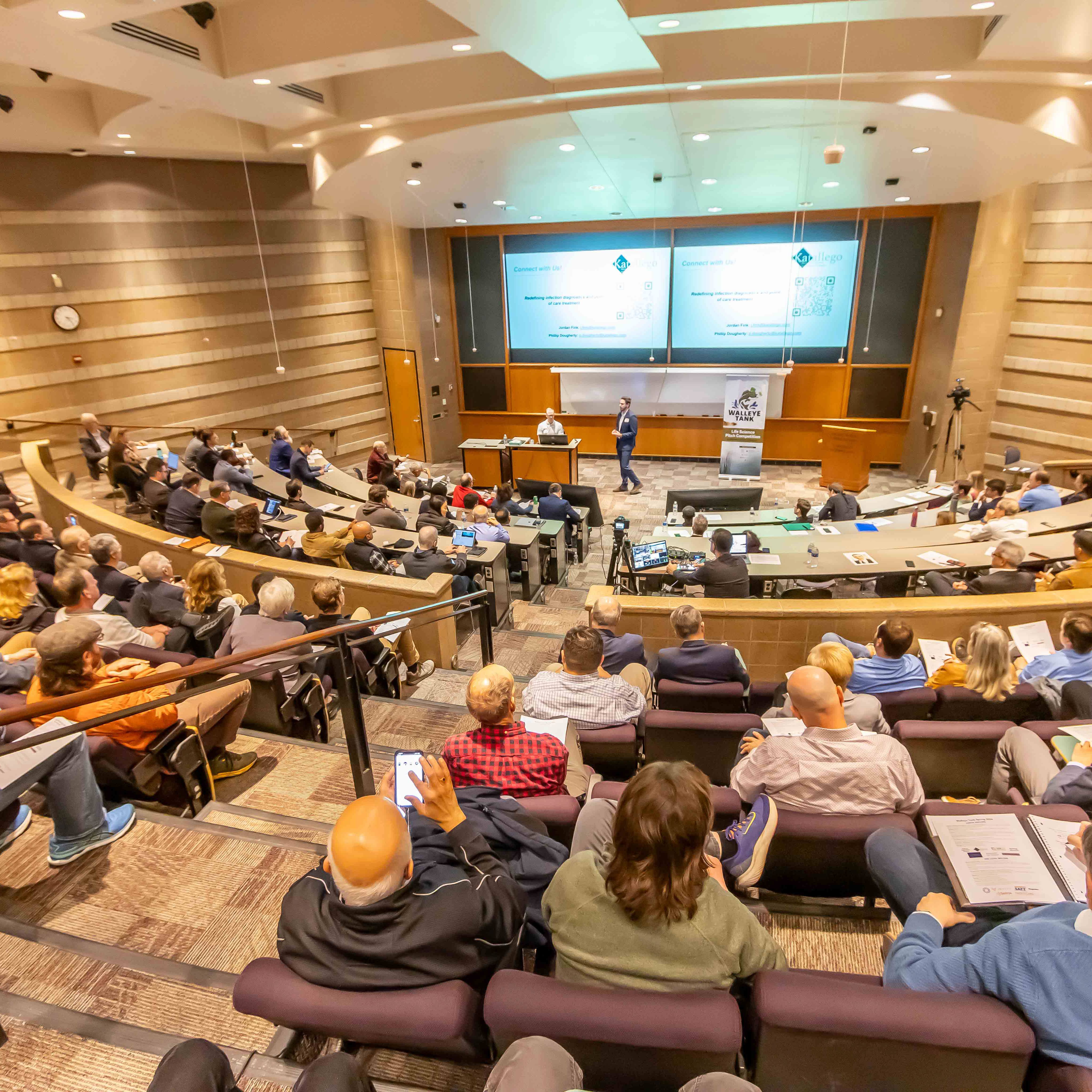-
Research
Meet Surbhi Shah, M.B.B.S., M.D. – Driven to learn, incorporating learning to improve care
Surbhi Shah, M.B.B.S., M.D., is a hematologist at Mayo Clinic in Arizona., whose focus is on treating patients with non-cancerous blood disorders. In addition to her clinical duties, Dr. Shah dedicates time both to learning, and to sharing what she learns – through teaching, mentoring, presentation and publication.
To expand her own understanding and increase Mayo's capacity to learn and transform patient care from the inside out, Dr. Shah recently started in the Kern Health Care Delivery Scholar Program. Within this mentored training and research program, she has a research focus – to create a learning health system for implementing anticoagulation stewardship, focusing on direct oral anticoagulants.
For patients, anticoagulation stewardship indicates that their physician will be able to individualize their care, choosing the best evidence-based course of treatment and management for them and their personal circumstances and health goals.
In order for colleagues and others to get to know the scholars and learn about some of the work supported by the Mayo Clinic Kern Center for the Science of Health Care Delivery, Dr. Shah and her fellow scholars are asked to share some of their background and reasons for joining the program.
Dr. Shah's interview follows:
What moment or experience in your life influenced your decision to be a clinician?
In my early years, I was always drawn to biology. When it was time for me to make a career choice, I found myself surrounded by family and friends whom I wanted to emulate. I quickly realized that what made them special to me was that they were in health care. Their commitment to serve others inspired me, and I could not imagine myself doing anything else.
What motivated you to become a Kern Health Care Delivery Scholar?
Health care in current times is complex, and advancements in medicine are happening at an unprecedent rate. Many clinicians struggle to keep up with the pace of change. This has led to significant variation in the how health care providers deliver care.
I believe that to provide high-quality care to all patients, practitioners must integrate the art of medicine with robust implementation health science measures. The Mayo Clinic Kern Center for the Science of Health Care Delivery has the expertise and resources to support such activities. The ability to collaborate with — and learn from — like-minded clinicians and researchers drew me to the program.
What is your focus and goal as a scholar within the Mayo Clinic Kern Center for the Science of Health Care Delivery?
The focus of my project is to create a learning health system for implementing anticoagulation stewardship, with a focus on direct oral anticoagulants.
My goal is to advance my training in building evidence-based, highly functional, learning health care systems. I hope to improve the efficient and effective translation of research knowledge in real-world health care systems.
Tell us about your mentoring team.
I am fortunate to have a mentoring team with highly complementary skill sets. The accomplished group of clinicians and research scientists supporting me with this work are:
- Jennifer L. Ridgeway, Ph.D., a health services researcher with expertise in qualitative and mixed methods research, formative and process evaluation, and implementation science. Dr. Ridgeway is interested in approaches that appreciate the complexity in health care and use a mix of methods — along with stakeholder engagement — to develop, implement and evaluate interventions that are acceptable, feasible and evidence based.
- Robert D. McBane II, M.D., the director of Mayo's vascular medicine clinic. He also chairs the Anticoagulant and Antiplatelet Stewardship Subcommittee. His clinical and research interest is focused on the use of anticoagulants in thrombotic disorders.
- Rajiv K. Pruthi, M.B.B.S., the co-director of Mayo's molecular hematology laboratory and director of the comprehensive Hemophilia Treatment Center at Mayo Clinic in Rochester, Minnesota. Dr. Pruthi's clinical and research activity is focused on bleeding and clotting disorders.
- Fadi E. Shamoun, M.D., the director of the Anticoagulation Clinic at Mayo Clinic in Arizona. Dr Shamoun's research interest focuses on thrombotic disorders and anticoagulation management.
- Xiaoxi Yao, Ph.D., M.P.H., a health outcomes researcher specializing in the prevention and treatment of cardiovascular diseases. Dr. Yao's work is focused on using large cohorts of patients managed in routine clinical practice to examine treatment patterns and clinical outcomes. She has also worked on using advanced analytic methods to develop new prediction models for guiding individualized treatment decisions.
How will your research transform or improve patient care, or affect public health?
Direct oral anticoagulants are a newer class of oral medications that are widely prescribed. Due to the relative novelty of the medication class, unintended medication errors in prescribing or dosage adjustments can occur, leading to adverse patient outcomes. However, there currently is no system in place to mitigate this issue.
My project aims to create a learning health system that will promote the use of existing resources in clinical practice and provide anticoagulation stewardship for direct oral anticoagulants. My team is particularly focused on the triple aim of quality, safety and affordability.
Why did you choose Mayo Clinic to pursue your career?
Joining Mayo Clinic was an easy decision. I feel honored to be a part of a community of world-renowned clinicians and researchers who are constantly advancing medical science with their innovative approaches and shared penchant for improved patient care.
Tell us three words that describe you.
Driven, friendly and organized.
Outside of work, what is one thing you like to do?
Spend time with my family.
###








